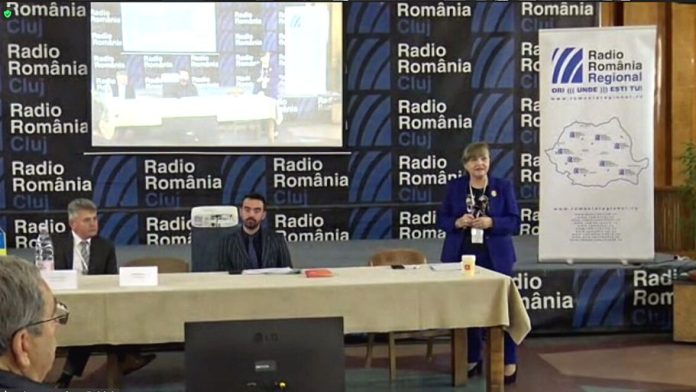On Thursday, 3 November 2022, the Conference“Accelerating Digital Transformation in Public Administration and Services“, organised by Academy of Romanian Scientists and Radio Romania – Territorial Studios. The conference was moderated by Prof. univ. dr. eng. Doina Banciu – AOSR vice-president, Bogdan Roșca Zasmencu – manager at Radio Cluj, Ioana Brușten – producer at București FM and Flavia Voinea – manager – București FM.

The scientific conference was held in three sections:
1.Public administration;
2. The role of research and education in digital transformation
3. Library of the future
The three sections of the conference focused on the general idea of identifying successful pathways for the effective implementation of digital transformation in public administration and services, as well as in Education and Public Libraries. During the conference there were many relevant interventions from parliamentarians, public authorities, university professors, library directors, specialists with national recognition.
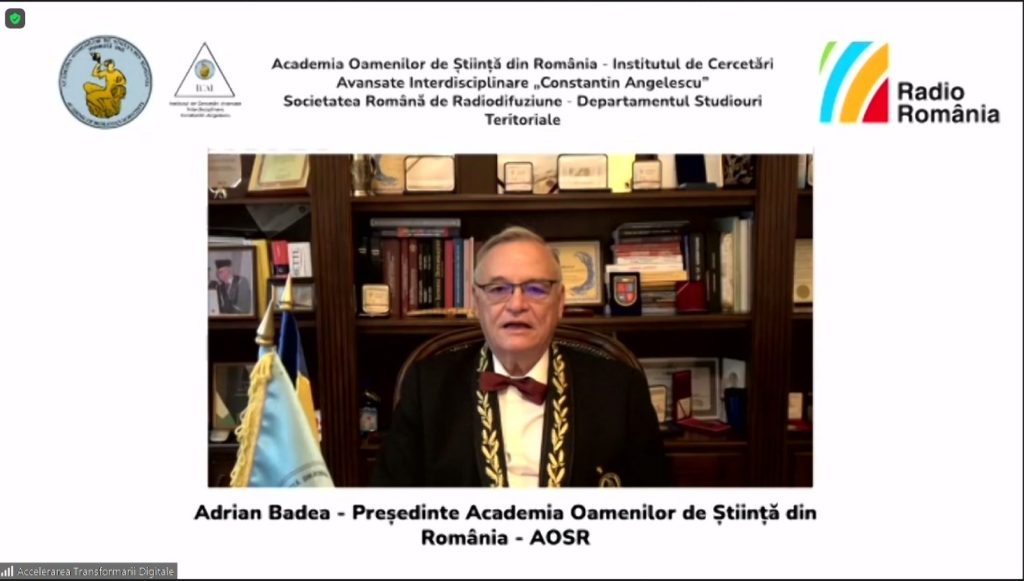
During the first part of the event, online messages were sent by Mr. Prof. Dr. Adrian Badea – President of AOSR, Mrs. Simona Bucura Oprescu – President of the Committee for Administration and Spatial Planning and Mrs. Natalia Intotero – President of the Education Committee of the Chamber of Deputies.

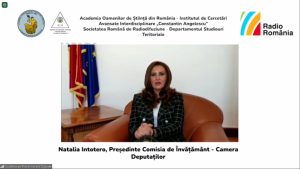
In the section dedicated to Public Administration, the President of the Agency for the Digitisation of Romania, Mr Dragoș Cristian Vlad, briefly presented the activities of the Agency, insisting on the way to access the funds from the NPRP for libraries. Also, Mr. Radu Puchiu, Executive Director of Aspen Romania, stressed the need to take rapid steps towards digitization in order not to lag behind advanced countries, although in the latest EU DESI Index Romania is the last country in these EU indicators.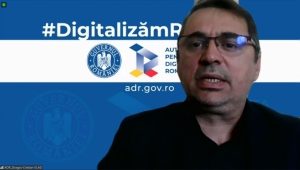

Of real interest were the presentations by representatives of the Hunedoara County Council, Mr. Iulian Iovan and especially the mayor Gheorghe Damian from Ciugud commune – Alba county who competently and conclusively explained the approach to digitization and the results obtained, making this commune a success story at European level.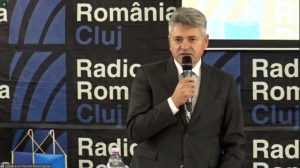
Another interesting intervention was made by Corneliu Stefan, President of Dâmbovița County Council, who said that his institution wants to develop a master plan for digitization and identify successful projects that can be extended to other counties in the country.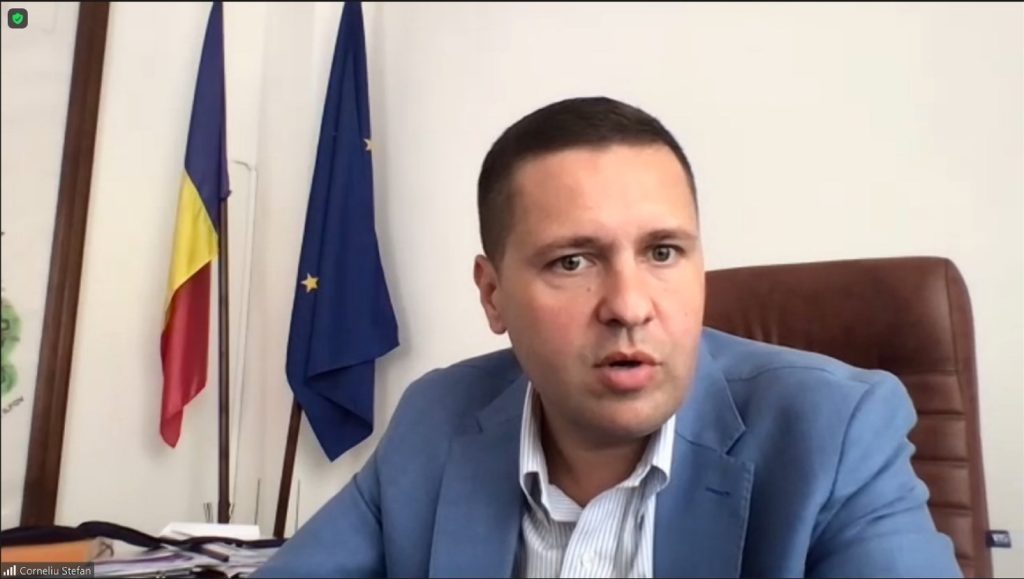
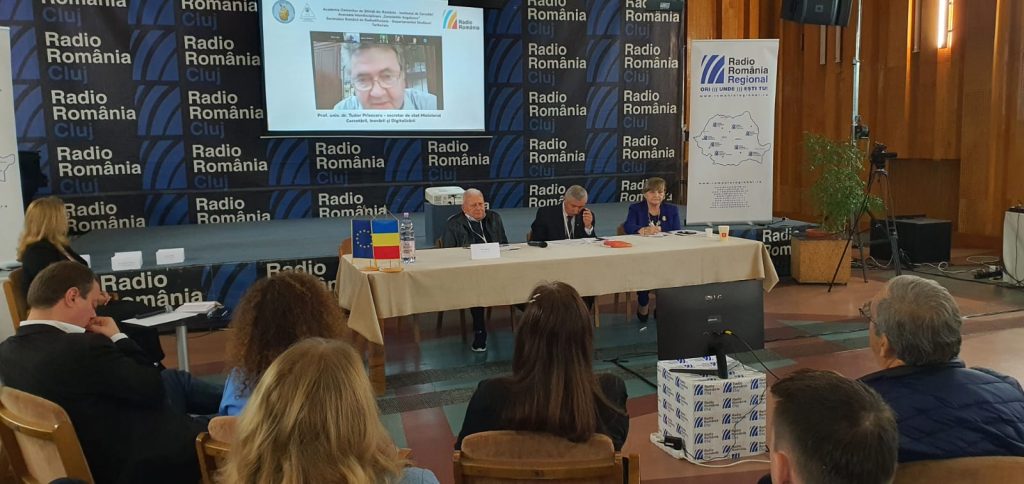 In the Education section, Mr. State Secretary Prof. Tudor Prisecaru gave a presentation that raised many issues related to Digitization and Digitization that decision makers and specialists need to address.
In the Education section, Mr. State Secretary Prof. Tudor Prisecaru gave a presentation that raised many issues related to Digitization and Digitization that decision makers and specialists need to address.
Mr. Prof. Liviu Miclea, Dean of the Faculty of Automation and Computers at the Technical University of Cluj Napoca, showed the projects and the university’s concern for the development of research and innovation hubs.
The president of the Cluj branch of AOSR, Prof. Marius Bojiță, stood out with a very substantial intervention on how technology can be applied in the medical act.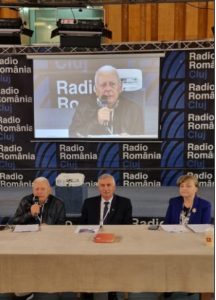
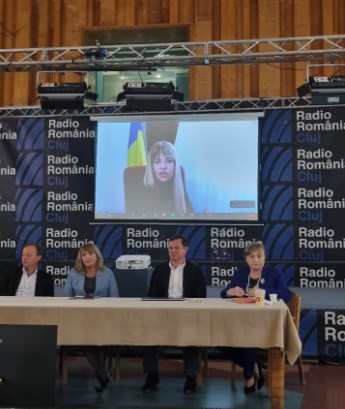 A third special section was dedicated to the Library of the Future, which included multiple interventions by specialists and library directors, among which we mention Mrs. Sorina Stanca – director of the Cluj County Library, Mr. Ioan Milică – director of the Central University Library “Mihai Eminescu” in Iasi, Mrs. prof. univ. Agnes Erich – president of the National Commission of Libraries, who summarized the needs and perspectives of the field, Mrs. Adriana Szekely – president of the Romanian Librarians Association, who brought up the status of educational libraries in relation to the PNNR. Ramona Mezei – director of the “Mihail Sadoveanu” Municipal Library in Bucharest – also made an interesting intervention on the evolution of libraries.
A third special section was dedicated to the Library of the Future, which included multiple interventions by specialists and library directors, among which we mention Mrs. Sorina Stanca – director of the Cluj County Library, Mr. Ioan Milică – director of the Central University Library “Mihai Eminescu” in Iasi, Mrs. prof. univ. Agnes Erich – president of the National Commission of Libraries, who summarized the needs and perspectives of the field, Mrs. Adriana Szekely – president of the Romanian Librarians Association, who brought up the status of educational libraries in relation to the PNNR. Ramona Mezei – director of the “Mihail Sadoveanu” Municipal Library in Bucharest – also made an interesting intervention on the evolution of libraries.
Also, a really interesting intervention was presented by Prof. Răzvan Bologa from ASE Bucharest, who highlighted the role of new technologies in the teaching process and talked about the initiative of equipping schools with robot kits and the effects on students. He noted the desire of youngsters to get involved in working with robots through the so-called hackathons held nationwide in recent years.
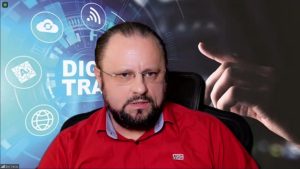 Ion Vaciu – Director of the “Mobile Communications” magazine, revealed the importance of the Digital Transformation Council’s activity, from his position as president, an organization that is the first local think tank promoting the Romanian ICT industry in correlation with the transformations in other convergent industries. Moreover, the changes of recent years must also affect public libraries, seen as true hubs for distribution and generation of cultural and scientific content.
Ion Vaciu – Director of the “Mobile Communications” magazine, revealed the importance of the Digital Transformation Council’s activity, from his position as president, an organization that is the first local think tank promoting the Romanian ICT industry in correlation with the transformations in other convergent industries. Moreover, the changes of recent years must also affect public libraries, seen as true hubs for distribution and generation of cultural and scientific content.
Victor Pânzaru – expert in European funds, detailed the PNRR mechanism aimed at funding libraries at national level, with the specification that each county is responsible for a project managed by the county library. Within this project, a consortium must be created with other town, municipal or even village libraries that fall under the official documents approved by the Government in this regard.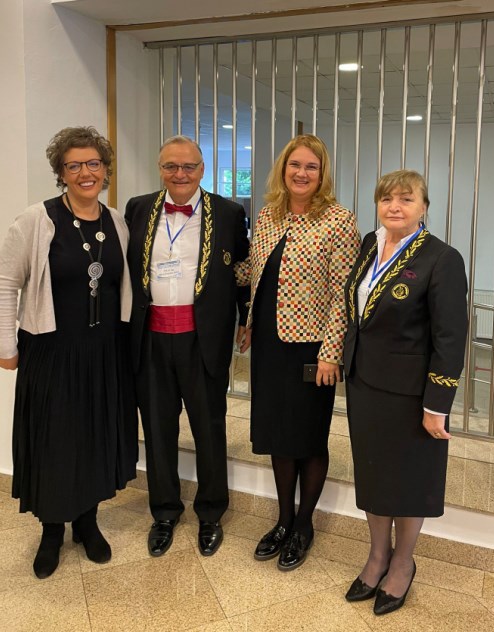 At the end of the proceedings, Prof. dr. eng. Doina Banciu stressed that digital transformation is a management issue, knowledge-based management, a management that must be applied in a systemic approach in which systems of systems must be coordinated. In fact, digital transformation implies a new social pact, an integrated project of the whole society, where decision-makers, academia and business use new technologies for the benefit of the citizen and the overall development of society.
At the end of the proceedings, Prof. dr. eng. Doina Banciu stressed that digital transformation is a management issue, knowledge-based management, a management that must be applied in a systemic approach in which systems of systems must be coordinated. In fact, digital transformation implies a new social pact, an integrated project of the whole society, where decision-makers, academia and business use new technologies for the benefit of the citizen and the overall development of society. The conference is part of a project called Ambassadors of Science, carried out by Radio Romania and the Academy of Romanian Scientists, coordinated by Florin Brușten, secretary general of Radio Romania Regional and Prof. Doina Banciu, vice-president of AOSR.
The conference is part of a project called Ambassadors of Science, carried out by Radio Romania and the Academy of Romanian Scientists, coordinated by Florin Brușten, secretary general of Radio Romania Regional and Prof. Doina Banciu, vice-president of AOSR.


